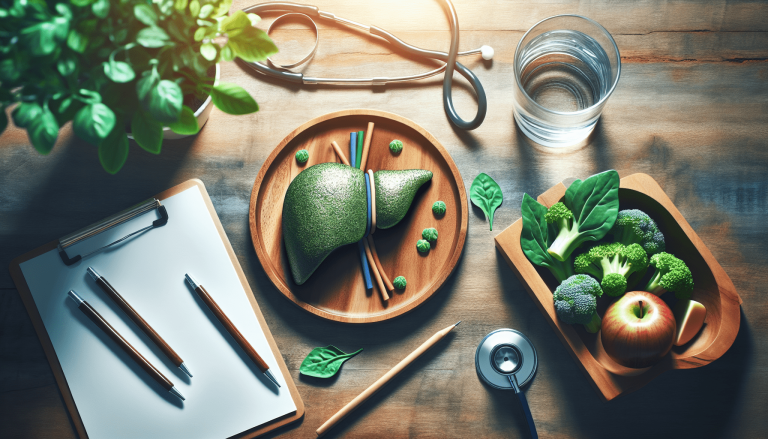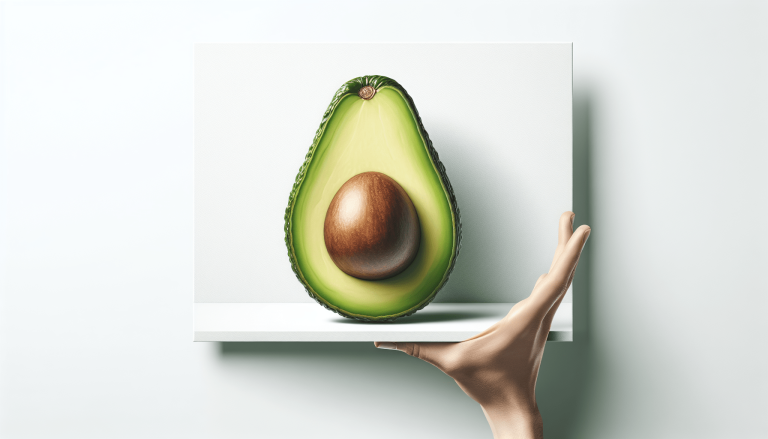What Is The Fastest Way To Repair Your Liver?
If you’ve ever wondered what the quickest route to rejuvenating your liver might be, you’re not alone. As our bodies work tirelessly to process toxins and maintain overall health, our liver often bears the brunt of the damage. But fear not! In this article, we will explore the most effective methods for repairing and revitalizing your liver, helping you feel your best and promote long-term wellness. So, get ready to discover the secrets to a revitalized liver and a healthier you!
Understanding Liver Health
What is the liver?
The liver is one of the largest organs in your body, located in the upper right side of your abdomen. It plays a crucial role in various metabolic processes and is responsible for filtering and detoxifying harmful substances from your blood.
What does the liver do?
The liver performs a multitude of functions that are essential for your overall health. It helps regulate your blood sugar levels, produces bile to aid in digestion, stores vitamins and minerals, and metabolizes medications and toxins. Additionally, the liver produces proteins that are necessary for blood clotting and immune function.
Importance of liver health
Having a healthy liver is vital for maintaining optimal overall health. A well-functioning liver ensures proper metabolism, detoxification, and digestion. It plays a crucial role in the absorption of nutrients, synthesis of proteins, and removal of waste products from your body. Taking care of your liver is essential to prevent liver diseases and maintain overall well-being.
Causes of Liver Damage
Alcohol consumption
Excessive alcohol consumption is a leading cause of liver damage. Alcohol is metabolized by the liver, and overindulgence can cause inflammation, fatty liver disease, and ultimately, liver cirrhosis. It is important to consume alcohol in moderation or better yet, avoid it altogether to protect your liver health.
Poor diet and nutrition
Consuming a diet high in processed foods, unhealthy fats, and added sugars can contribute to liver damage. Such a diet leads to weight gain, fatty liver disease, and insulin resistance. Opting for a balanced diet that includes whole grains, fruits, vegetables, lean proteins, and healthy fats can support liver health.
Viral infections
Certain viral infections, such as hepatitis B and C, can cause inflammation and damage to the liver. These infections are mostly transmitted through contaminated blood or sexual contact. Getting vaccinated against hepatitis B and taking precautionary measures can help prevent these infections.
Toxic substances and medications
Exposure to toxic substances like pesticides, chemicals, and certain medications can harm your liver. Long-term use or high doses of medications, such as acetaminophen, can lead to liver damage. It is important to follow dosage instructions and consult a healthcare professional before taking any medications.
Obesity and metabolic syndrome
Being overweight or obese and having metabolic syndrome can increase the risk of developing fatty liver disease and liver inflammation. These conditions are often associated with insulin resistance and high levels of triglycerides in the blood. Maintaining a healthy weight through a balanced diet and regular exercise can help protect your liver.

Symptoms of Liver Damage
Frequent fatigue and weakness
Persistent fatigue and weakness are common symptoms of liver damage. As the liver struggles to perform its functions efficiently, you may experience ongoing tiredness and a lack of energy.
Digestive issues
Liver damage can affect your digestion. You may experience symptoms such as loss of appetite, nausea, vomiting, and diarrhea. Bloating and gas can also occur due to the liver’s reduced ability to produce bile, which aids in the digestion of fats.
Jaundice
Jaundice is a yellowing of the skin and eyes caused by a buildup of bilirubin, a waste product processed by the liver. It is a common symptom of liver damage and indicates impaired liver function.
Abdominal pain and swelling
Liver damage can cause abdominal discomfort, pain, and swelling. This can occur due to inflammation, fluid accumulation, or an enlarged liver.
Changes in urine and stool color
Liver damage can lead to changes in urine and stool color. Urine may appear darker than usual, while stools may become lighter or grayish. These changes occur as a result of the liver’s reduced ability to process waste products.
Medical Approaches to Liver Repair
Liver transplantation
In severe cases of liver damage, a liver transplant may be necessary. During this surgical procedure, a healthy liver from a deceased or living donor replaces the damaged liver. Liver transplantation is a complex procedure that requires thorough evaluation and monitoring.
Medications
Certain medications can be prescribed to manage specific liver conditions and promote liver recovery. These medications aim to reduce inflammation, improve liver function, and address underlying causes of liver damage.
Clinical interventions
Clinical interventions, such as interventional radiology procedures or minimally invasive surgeries, may be recommended to treat specific liver diseases or complications. These interventions focus on addressing underlying causes, managing symptoms, or improving liver function.

Natural Ways to Repair Your Liver
Avoiding alcohol and toxic substances
The first and most crucial step in natural liver repair is to avoid alcohol consumption and exposure to toxic substances. Alcohol damages liver cells, and toxic substances place additional stress on the liver. By eliminating or minimizing these substances, you give your liver a chance to heal.
Eating a balanced and nutritious diet
A healthy diet plays a significant role in liver repair and maintenance. Including a variety of fruits, vegetables, whole grains, lean proteins, and healthy fats can provide essential nutrients and antioxidants that support liver health.
Herbal supplements for liver health
Certain herbal supplements, such as milk thistle, dandelion root, and artichoke extract, have been traditionally used to support liver function. These supplements may have antioxidant and anti-inflammatory properties that can aid in liver repair.
Regular exercise and weight management
Regular physical activity and maintaining a healthy weight are crucial for liver health. Exercise improves blood flow, reduces fat accumulation, and helps manage underlying conditions like obesity and metabolic syndrome, which can contribute to liver damage.
Adequate hydration
Staying hydrated is essential for liver health. Drinking an adequate amount of water helps flush toxins out of your body and supports optimal liver function. Aim to drink at least eight glasses of water per day.
Specific Foods for Liver Repair
Cruciferous vegetables
Cruciferous vegetables like broccoli, cauliflower, cabbage, and Brussels sprouts contain compounds that support liver detoxification. These vegetables are rich in fiber, antioxidants, and phytonutrients that promote overall liver health.
Garlic and onions
Garlic and onions are known for their sulfur-containing compounds, which assist in detoxifying the liver. These ingredients also have anti-inflammatory properties that can protect liver cells from damage.
Turmeric
Turmeric contains curcumin, a potent antioxidant and anti-inflammatory compound. It has been shown to protect the liver from damage and promote liver cell regeneration. Incorporating turmeric into your diet can be beneficial for liver repair.
Citrus fruits and berries
Citrus fruits and berries are rich in vitamin C and antioxidants, which help neutralize harmful free radicals and protect liver cells. Including fruits like oranges, lemons, and berries in your diet can support liver health.

Fatty fish
Fatty fish, such as salmon, mackerel, and sardines, are excellent sources of omega-3 fatty acids. These fatty acids have anti-inflammatory properties and can help reduce liver inflammation. Consuming fatty fish in moderation can contribute to liver repair.
Liver Cleansing and Detoxification
Fasting and intermittent fasting
Fasting or intermittent fasting has been practiced for centuries as a way to cleanse and rejuvenate the body, including the liver. These fasting techniques give the liver a break from processing food and help eliminate toxins.
Liver detoxification diets
Liver detoxification diets involve consuming foods that support liver health while avoiding processed foods, alcohol, and other substances that burden the liver. These diets typically include fresh fruits, vegetables, and whole grains.
Herbal teas and tonics
Certain herbal teas and tonics, such as dandelion root tea, green tea, and milk thistle tea, have been used for liver detoxification. These beverages are believed to have antioxidant and anti-inflammatory properties that support liver health.
Beneficial Lifestyle Changes
Reducing stress levels
Chronic stress can impact liver health, so finding healthy ways to manage stress is important. Engaging in activities like yoga, meditation, deep breathing exercises, and spending time with loved ones can help reduce stress levels.
Getting sufficient sleep
Adequate sleep is essential for liver repair and overall well-being. During sleep, the body goes into a healing and regenerative mode, which includes the liver. Aim for seven to eight hours of quality sleep each night.

Avoiding smoking and secondhand smoke
Smoking and exposure to secondhand smoke can contribute to liver damage. The harmful chemicals in tobacco smoke can directly affect liver function. Avoiding smoking and staying away from secondhand smoke is crucial for liver health.
Maintaining a healthy weight
Maintaining a healthy weight through regular exercise and a balanced diet is important for liver health. Excess weight can lead to fatty liver disease, insulin resistance, and inflammation, which can ultimately damage the liver.
Ensuring Proper Medication Use
Following dosage instructions
When taking prescribed medications, it is crucial to follow the dosage instructions provided by your healthcare professional. Taking medications correctly helps prevent medication-induced liver damage and ensures optimal medication effectiveness.
Avoiding excessive use of painkillers
Prolonged or excessive use of painkillers, such as acetaminophen, can harm the liver. These medications, when taken in high doses, can cause liver damage. It is important to follow recommended dosages and consult a healthcare professional if you have any concerns.
Consulting a healthcare professional
Whenever starting a new medication or supplement, it is important to consult a healthcare professional to ensure its safety and appropriate use, especially if you have a history of liver damage. They can provide guidance on potential risks and help monitor your liver function.
Monitoring and Regular Check-ups
Regular liver function tests
Regular liver function tests, such as blood tests, can help monitor the health of your liver. These tests measure various liver enzymes and markers that indicate liver function, allowing healthcare professionals to detect potential damage or disease.
Routine medical check-ups
Attending routine medical check-ups is essential for maintaining overall health, including liver health. Regular check-ups allow healthcare professionals to assess your well-being, identify any potential liver issues, and provide appropriate guidance or interventions.
By understanding the importance of liver health and implementing the necessary lifestyle changes, you can significantly contribute to the repair and maintenance of your liver. Follow these tips, lead a healthy and balanced lifestyle, and consult a healthcare professional for proper guidance and support.
Additional Resources

If you’ve ever done a liver cleanse… You were probably shocked by the “gunk” that comes out… But you were probably ALSO blown away by how good you felt… your mental clarity… your energy… your digestion… even weight.
When you start digging into liver health — you’ll be even more stunned and amazed at what you discover.
Because your liver is connected to just about everything happening in your body (even sex-hormones are regulated by the liver)…






